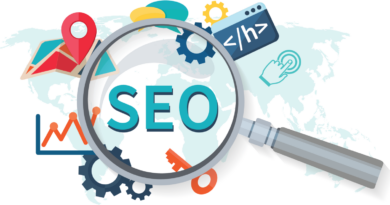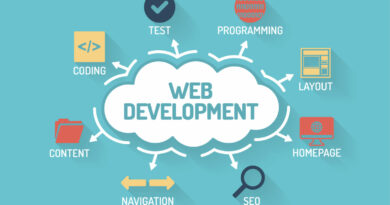Cloud-Based ERP Software Solutions: Transforming Business Operations
Today, many businesses are turning to cloud-based ERP (Enterprise Resource Planning) software solutions helps to manage and streamline their operations. From small startups to large corporations, cloud-based ERP is helping companies simplify their processes, save money, and make smarter decisions. This blog will cover what cloud-based ERP software is, the benefits and challenges it brings, and why it’s becoming an essential tool for businesses.
What is Cloud-Based ERP Software?
Cloud-based ERP software is a system solution combines essential business functions, like finance, inventory, sales, and customer management, into one platform accessible over the internet. Unlike traditional ERP systems that require on-premise servers and extensive IT support, cloud-based ERP is hosted by a third-party provider on remote servers, which means it doesn’t need hardware on-site and can be accessed from anywhere.
Examples of popular cloud-based ERP solutions include NetSuite, SAP S/4HANA Cloud, and Microsoft Dynamics 365. These platforms let employees log in through web browsers or mobile apps, making it easy to work from different locations and keep everyone on the same page.
Key Benefits of Cloud-Based ERP Software
Cloud-based ERP software offers several advantages that can make a significant difference for businesses looking to optimize and modernize their operations.
- Cost Savings
One of the most attractive benefits of cloud-based ERP is the cost savings. Traditional ERP systems often involve high upfront costs for servers, licenses, and IT support. Cloud ERP, however, usually operates on a subscription model, which spreads costs over time and includes maintenance, updates, and support in the subscription. This pay-as-you-go model makes cloud ERP more affordable, especially for small to mid-sized businesses.
- Scalability and Flexibility
As businesses grow, their ERP system needs to keep up with increased data and more users. Cloud-based ERP systems can be scaled up or down as needed, adding or removing users, functions, or features without a complete system overhaul. Additionally, because cloud ERP is accessible from anywhere with an internet connection, it allows remote work and flexibility for employees, making it easier for teams to collaborate.
- Enhanced Security and Compliance
A common concern with cloud-based software is security, but top ERP providers use strict security measures like encryption, regular software updates, and backup protocols to protect data. Cloud ERP providers also comply with industry-specific regulations such as GDPR (for data protection in the EU) and HIPAA (for healthcare in the US). This helps businesses stay compliant without needing to manage data security independently.
- Automatic Updates and Maintenance
With traditional ERP systems, companies often have to pause operations to handle software upgrades, which can be time-consuming and disruptive. In contrast, cloud-based ERP providers handle updates automatically, so companies always have the latest features and security without any extra effort or downtime. This also means businesses stay current with evolving technology, giving them a competitive edge.
- Better Data Analytics and Insights
Cloud ERP systems offer real-time data tracking and analytics, helping businesses make informed decisions faster. By centralizing data from different departments, cloud ERP software solutions provides a clear view of the company’s performance and allows for better strategic planning. Many cloud ERP providers are now adding AI and machine learning features, which analyze data trends and offer predictions, further supporting data-driven decision-making.
Challenges of Cloud-Based ERP Solutions
While cloud-based ERP systems offer numerous benefits, there are some challenges that businesses might face when implementing them.
- Customization Constraints
Cloud ERP systems are often less customizable than traditional ERP systems. Because cloud ERP is based on shared resources, too many customizations can affect performance. Many ERP providers, however, offer flexible configurations that let businesses make changes without heavy customization, maintaining a balance between functionality and stability.
- Data Migration
Moving data from older systems to a new cloud-based ERP can be a complex process. Data needs to be transferred in the correct format, and inconsistencies can cause errors. The migration process should be planned carefully, often with help from experienced consultants or certified NetSuite partners, to ensure smooth data transfer and reduce complications.
- Employee Training and Change Management
A new ERP system can change how employees work, and adjusting to the new system may take time. To make the transition smoother, companies should invest in training programs to help employees understand the new system and its benefits. Managing this change effectively is key to ensuring the ERP system is used correctly and to its full potential.
- Downtime and Connectivity Requirements
Cloud-based ERP systems rely on a stable internet connection, so disruptions can hinder access to the system. While most ERP providers offer high uptime guarantees, occasional downtime is still possible. It’s important for businesses to understand the service-level agreements (SLAs) offered by the provider and plan backup solutions to minimize the impact of potential downtime.
Future Trends in Cloud-Based ERP
Cloud-based ERP solutions continue to evolve, and providers are adding new technologies to enhance functionality and user experience. Here are some key trends shaping the future of cloud ERP:
- AI and Machine Learning
Many ERP providers are integrating AI and machine learning features to help businesses optimize operations through predictive analytics and automation. These technologies can analyze data, identify patterns, and make recommendations, helping companies reduce costs, improve efficiency, and anticipate customer needs.
- Internet of Things (IoT) Integration
The IoT, or Internet of Things, allows devices to connect and share data. By integrating IoT with ERP, companies can track real-time data on equipment, manage assets, and monitor inventory more effectively. This is especially beneficial for industries like manufacturing and logistics, where timely information is crucial.
- Enhanced Mobile Access
As remote work becomes more common, ERP providers are improving mobile access to allow employees to manage data, check reports, and communicate with teams from anywhere. This trend enables greater flexibility and ensures that remote and on-site employees stay connected.
- Low-Code and No-Code Platforms
Low-code and no-code options let users with little technical expertise customize workflows, create reports, and make dashboards within the ERP system. These platforms give businesses more control and flexibility to adjust the ERP system without needing extensive IT resources, speeding up implementation and adjustments.
How to Choose the Right Cloud-Based ERP Solution
When selecting a cloud-based ERP, it’s important to look at factors that match the unique needs of your business:
- Functionality: Does the system offer features that cover all key processes of your business?
- Scalability: Can the system grow with your business?
- Integration: Will it work well with other software you already use?
- Security and Compliance: Does it meet industry standards for security and compliance?
- Support and Training: Is there reliable support available for onboarding and user training?
Working with a certified partner, like NetSuite partners in India, can be valuable, as these experts offer support in setting up, customizing, and managing the ERP system.
Conclusion
Cloud-based ERP software solutions have changed how businesses operate by making processes more efficient, cutting costs, and helping companies make data-driven decisions. While implementing a cloud ERP comes with some challenges, the advantages far outweigh them, providing businesses with a system that can grow with their needs and adapt to changes.
As cloud ERP technology advances with AI, IoT, and mobile-friendly features, businesses can stay connected, work smarter, and be ready for future challenges. With the right ERP system and guidance from experts, companies can improve efficiency, boost productivity, and drive growth in an ever-evolving business landscape.



